UPDATES
Michael Jones-Correa, formerly the Robert J. Katz Chair of the Department of Government at Cornell University, has been named the President’s Distinguished Professor of Political Science at Pennsylvania State University. He is also director of Penn State’s new Center for the Study of Ethnicity, Race, and Immigration.
Costas Panagopoulos, formerly professor of political science and Director of the Center for Electoral Politics and Democracy at Fordham University, has been appointed professor of political science and Director of Big Data and Quantitative Initiatives at Northeastern University. He is currently editor of American Politics Research.
L. Pauline Rankin, formerly associate vice president (research & international) and a professor in the school of Indigenous and Canadian studies, has been named dean of the faculty of arts and social sciences at Carleton University.
William C. Green Recognized by the Kentucky Political Science Association
Morehead State University’s Dr. William C. Green, professor of government, received the Distinguished Political Scientist Award at the annual meeting of the Kentucky Political Science Association (KPSA). Green becomes one of only 17 Kentucky political science faculty to receive the honor since its creation in 1987. An MSU faculty member for the past 34 years, Green has received MSU’s Distinguished Teaching Award, Distinguished Research Award and Internship Faculty of the Year Award for his recruitment and preparation of 66 MSU students who have participated in the five-week Canadian Parliamentary Internship Program. Green holds a juris doctorate (JD) from the University of Kentucky College of Law, a PhD in political science from the State University of New York at Buffalo and an MA in political science. In addition, Green holds a BS in education and a BA in history, cum laude, from Kent State University.
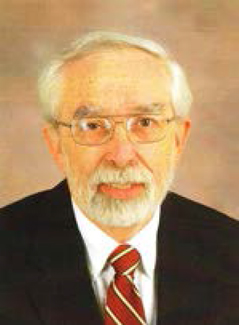
Green’s research explores constitutional and civil liberties issues and the legal dimensions of economic development, labor relations, language rights, and pharmaceutical drug policies. His publications include four books, five book chapters, 25 journal articles and 44 encyclopedia essays. His most recent book, Contraceptive Risk: The FDA, Depo-Provera, and the Politics of Experimental Medicine, was published by New York University Press in 2017. He now has a contract with Lexington Books to write Free the Grapes: Granholm v. Heald, Boutique Wineries, and State Alcohol Beverage Regulation.
As the government program’s law school adviser, throughout his tenure he created Societas Pro Legibus, MSU’s campus-based society for the study of law, authored the question-based How to Take the LSAT and Go to Law School, and advised students who have been admitted to the nation’s top 10% of law schools and to the University of Vermont, the nation’s top environmental law school.
Students who become Canadian parliamentary interns begin their preparation with Green’s course on North American politics during which they write Canadian-focused research proposals. In Ottawa, the students conduct research for their papers and, upon their return, write and present papers at MSU’s Celebration of Student Scholarship and the Kentucky Political Science Association’s annual meetings. Since 2004, the interns have received an MSU Canadian Studies Scholarship, which Green created, to provide them with a total of $50,000 in financial support.
Adapted from the Morehead State University press release.
Keep PS Informed
Share your news and announcements with PS and our readers. Let us know about your new appointment, activity, event, or award by emailing PS editorial associate Nick Townsend at [email protected].
Charles R. Kesler Awarded 2018 Bradley Prize
Claremont Mckenna College’s Dengler-Dykema Distinguished Professor of Government Charles R. Kesler is one of three recipients of the 2018 Bradley Prize for individuals who work to “restore, strengthen, and protect the principles and institutions of American exceptionalism.” The Lynde and Harry Bradley Foundation bestowed the awards, which carry a $250,000 stipend, at the 15th annual Bradley Prizes ceremony on May 15 at the National Building Museum in Washington, DC.
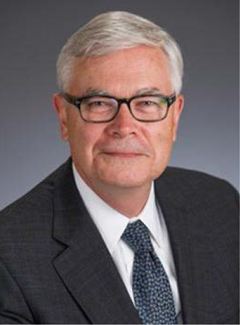
A political theorist who is an authority on Cicero, The Federalist Papers, and modern liberalism and conservatism, Kesler joined the CMC faculty in 1983. Along with his teaching and research, he has partnered with leading conservative policymakers and writers including William F. Buckley, Jr., with whom he collaborated on a book, Keeping the Tablets: Modern American Conservative Thought. He has been the founding editor of the Claremont Review of Books for 18 years. Kesler’s most recent volume, I Am the Change: Barack Obama and the Future of Liberalism, drew critical acclaim, including a front-page review in the New York Times Book Review.
Richard Graber, president and CEO of the Bradley Foundation, said the foundation honored Kesler for “advancing the ideals of freedom in both academia and public policy.”
This year’s award winners were chosen by the Bradley Prizes Selection Committee, a group of notable leaders in various fields, after careful review of nearly 200 nominations.
Adapted from the Claremont Mckenna College press release.
Louise Richardson Receives Honorary Degree from University of Notre Dame
Louise Richardson and a distinguished group of four other US and international figures joined the principal speaker, Brazilian Judge Sérgio Fernando Moro, as honorary degree recipients at the University of Notre Dame’s 173rd University Commencement Ceremony on May 20, 2018. Dr. Richardson recieved an honorarydoctor of laws degree.
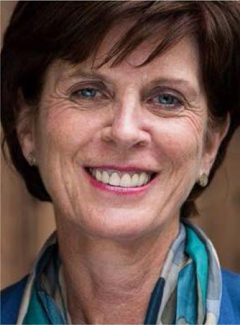
The vice chancellor of Oxford University since 2016, Richardson is an Irish political scientist who specializes in the study of international security with an emphasis on terrorist movements. The first woman to lead Oxford, she previously served for seven years in the same position at the University of St. Andrews in Scotland. Richardson was an assistant and associate professor of government at Harvard University for 12 years and executive dean of the Radcliffe Institute for Advanced Study at Harvard for seven years. She earned her bachelor’s degree from Trinity College Dublin, a master’s degree from UCLA and master’s and doctoral degrees from Harvard. The author of several books on terrorism, Richardson has lectured widely on the subject and received the Sumner Prize for her work toward the prevention of war and the establishment of universal peace.
Adapted from the Norte Dame press release.
Jane Mansbridge Awarded 2018 Johan Skytte Prize
Jane Mansbridge, Charles F. Adams Professor in Political Leadership and Democratic Values at Harvard University, was awarded the 2018 Johan Skytte Prize in Political Science. Professor Mansbridge received the prize for “having shaped our understanding of democracy in its direct and representative forms, with incisiveness, deep commitment, and feminist theory.” The prize will be conferred by the Skytte Foundation on September 29, 2018.
Mansbridge’s erudite contribution to political science spans several subfields. During a long and distinguished career, she has made field-defining contributions to the understanding of the theory and practice of democracy, political representation and deliberation as well as feminist theory. Her distinction between conflict- and consensus-driven democracy laid the foundations for her own and others’ influential research into direct democracy and the importance of deliberation for democracy. Mansbridge is also widely known for her nuanced argument that, under certain circumstances, group membership can be a legitimate basis for political representation as a way to give voice to the previously politically marginalized groups. She has brought mainstream and feminist approaches into dialogue with one another to cast light on big democratic questions. She has also been a pioneering role model for women in political science.
The Johan Skytte Prize includes a prize sum of $500,000 SEK and a medal crafted by renowned Swedish goldsmiths. The prize, often referred to as the political-science equivalent to the Nobel Prize, has been awarded annually since 1995 to a scholar who, in the view of the Prize Committee, has made extremely valuable contributions to political science. The prize is part of the legacy of Johan Skytte, a Swedish statesman who in 1622 founded what is now the oldest department of political science in the world–the Department of Government at Uppsala University.
Adapted from the Skytte website.
Vincent Boudreau Appointed President of the CUNY
The City College of New York hosted their presidential investiture ceremony on March 29, 2018. The City University of New York board of trustees appointed the presidency to political scientist Vincent Boudreau. Boudreau will be the 13th president of CCNY. He will also be the second faculty member ever to be promoted to the presidency.

Boudreau worked at CCNY as a political science professor and as a faculty member at the Graduate Center. He also has served as the interim president for a year. Boudreau is well-known for his effort in establishing CCNY’s Colin Powell School for Civic and Global Leadership. During his tenure, he led an effort that raised more than $50 million in support of the Colin Powell School and campus-wide programs. Boudreau is a graduate of Cornell University, where he earned his PhD in 1991.
William C. Thompson Jr., chairperson of the CUNY Board of Trustees, said: “As interim president and, before that, inaugural dean of the Colin Powell School, an administrator, scholar, and champion of the college, Dr. Boudreau has exemplified the leadership and dedication that City College needs to chart its future course. The City College that he leads–and envisions–is one that hews to its core historic mission of access, inclusion, and excellence.”
Boudreau is known as an advocate for the rights of undocumented students. He is a specialist in the politics of social movements, particularly in Southeast Asia; Boudreau’s latest book is Resisting Dictatorship: Repression and Protest in Southeast Asia.
Adapted from the City College of New York’s press release.
Political Scientists Awarded “Duckies”
Erica Chenoweth, professor at the University of Denver’s Josef Korbel School of International Studies and an associate senior researcher at the Peace Research Institute of Oslo, Barbara F. Walter, political science professor at the University of California, San Diego’s School of Global Policy and Strategy, and Joseph Young, associate professor at American University’s School of Public Affairs and School of International Service, were honored on April 6, 2018 by the Online Achievement in International Studies Awards (also known as “the Duckies”) for their blog Political Violence @ a Glance. This is the second time the blog was awarded under the “Best Group Blog” category, the first time being in 2015.
Political Violence @ a Glance was cofounded in 2012 by Chenoweth, Walter, Young, and William H. Moore III, who passed away in April 2017. The blog consistently produces expert analysis of timely problems related to violence and protest in world conflict zones, as well as analysis of ongoing scholarly and policy debates in international relations. According to the cofounders, the goal of the blog is to preempt questions on political violence and produce straight-forward and insightful content, free from academic jargon, before anyone else.
The Online Achievement in International Studies Awards are a collaborative partnership between SAGE and the International Studies Association’s Online Media Caucus to support and develop debates around public policy and the social sciences, ongoing since 2013. The presentation of the awards has become a core event on the international studies circuit, bringing together new and experienced voices to debate issues within the field.
Additionally, Chenoweth and Political Violence @ a Glance contributors Cullen Hendrix and Oliver Kaplan, associate professor and assistant professor (respectively) at the University of Denver’s Josef Korbel School of International Studies, were honored separately. Each appeared under the “Best Blog Post” category for their posts on Political Violence @ a Glance: “When Engaged Scholarship Means Resistance,” “Can Civilian Non-Violent Action Deter Massacres?” and “Charismatic Megafauna in Conflict Studies, or Why WWII is the Giant Panda of the Conflict/Security Field,” respectively.
Adapted from the SAGE press release and Political Violence @ a Glance.
Jennifer Welsh Named a Canada 150 Research Chair
International relations scholar Jennifer Welsh was named one of two Canada 150 Research Chairs at McGill University, alongside cosmologist Jonathan Sievers. The appointments were among the 24 Chairs announced at the Canadian Museum of History in Gatineau, Quebec, by minister of science Kirsty Duncan.
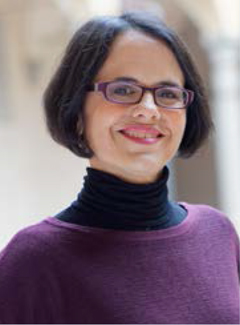
The Canada 150 Research Chairs Program, created in celebration of Canada’s 150th anniversary, aims to attract top-tier, internationally-based researchers and scholars whose accomplishments have made a major impact in their fields. Under the $117.6 million, one-time funding program, the Chairs are created for a seven-year term at $350,000 per year or $1 million per year.
Welsh is expected to help shape the future of a flourishing research areas at McGill: she will join the Department of Political Science in the Faculty of Arts and the recently inaugurated Max Bell School of Public Policy in January 2019.
“We are extremely pleased to welcome to McGill these two internationally acclaimed scholars, thanks to the Canadian government’s Canada 150 Chairs program,” said McGill principal and vice chancellor Suzanne Fortier.
Adapted from the McGill University press release.
2018 Guggenheim Fellows Announced
United States Senator Simon Guggenheim and his wife established the John Simon Guggenheim Memorial Foundation in 1925 as a memorial to their son who died April 26, 1922. The foundation offers fellowships to further the development of scholars and artists by assisting them as they engage in research. The fellowships are awarded to any field of knowledge and creation in any of the arts, under the freest possible conditions and irrespective of race, color, or creed. Since its inception, the foundation has sought to “add to the educational, literary, artistic, and scientific power of this country, and also to provide for the cause of better international understanding.”
The foundation receives between 3,500 and 4,000 applications each year with approximately 200 fellowships awarded. Guggenheim Fellowships are intended for those who have already demonstrated exceptional capacity for productive scholarship or exceptional creative ability in the arts. The following APSA members received fellowships this year under the “Political Science” category.
Peter A. Hall
Peter A. Hall is the Krupp Foundation Professor of European Studies at Harvard University and a resident faculty member at the Minda de Gunzburg Center for European Studies. He received his BA from the University of Toronto, an MPhil from Oxford University and AM and PhD degrees from Harvard University as well as honorary degrees from Sciences Po, Paris and Aston University.
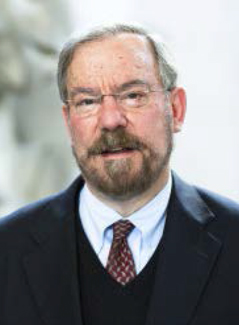
Professor Hall has written extensively about comparative political economy, European politics, public policymaking, the methodology of social science and the role of institutions and ideas in politics. He is the author of more than one hundred articles on these subjects and of Governing the Economy (Oxford University Press 1986) which received the Woodrow Wilson Foundation Award for the best book published in the United States in the field of government, politics, or international affairs. His eight edited volumes include: The Political Power of Economic Ideas, Varieties of Capitalism (with D. Soskice), Successful Societies (with M. Lamont) and Social Resilience in the Neoliberal Era (with M. Lamont).
Professor Hall is a Corresponding Fellow of the British Academy and has held residential fellowships at the Center for Advanced Study in the Behavioral Sciences, the Wissenschaftskolleg zu Berlin, the Hanse Wissenschaftskolleg, the Centre de Sociologie des Organisations in Paris and Princeton University. In previous years, he has served as associate dean for the Faculty of Arts and Sciences at Harvard and director of its Center for European Studies as well as president of APSA’s Comparative Politics and Qualitative and Multi-Method Research sections.
Professor Hall’s Guggenheim project focuses on the renegotiation of the social contract in the developed democracies over the years since 1945 and on the role of electoral politics and producer group politics in that process.
Vivien A. Schmidt
Vivien A. Schmidt is Jean Monnet Professor of European Integration and professor of international relations and political science in the Pardee School at Boston University, where, until 2017, she served as the founding director of its Center for the Study of Europe.

Born in New York City, Schmidt was brought up in Milan, Italy, earned her BA from Bryn Mawr College, and earned her MA and PhD at the University of Chicago. She has held visiting professorships and fellowships at a wide range of European institutions, including LUISS University in Rome, the Free University of Brussels, the Copenhagen Business School, the Free University of Berlin, Sciences Po, the European University Institute in Florence, and Oxford University.
Professor Schmidt’s scholarly research is situated at the intersection of political theory, comparative politics, and international relations. Her comparative work focuses on the changing nature of European politics and economics in a globalizing world, her theoretical work on the role of ideas and discourse in the dynamics of change. In her Guggenheim project on the “rhetoric of discontent,” she extends her interests to the US in a transatlantic investigation of the populist revolt against globalization (and Europeanization).
Schmidt is the author or editor of over a dozen books, including: Democracy in Europe, named by the European Parliament as one of the ’100 Books on Europe to Remember;’ Resilient Liberalism in Europe’s Political Economy; The Futures of European Capitalism; Democratizing France; and the forthcoming Europe’s Crisis of Legitimacy, on the dilemmas of Eurozone governance. Her epistemological work on “discursive institutionalism,” which explores the ideational and discursive processes in comparative politics, has informed her books as well as articles published in the Annual Review of Political Science, the European Political Science Review, and other journals.
Schmidt has been awarded an honorary doctorate from the Free University of Brussels, a Rockefeller Foundation Bellagio Center Residency, a Belgian Francqui Foundation Chair, and Fulbright Fellowships in France and the UK. She is past head of the European Union Studies Association and sits on numerous editorial and advisory boards, including the Wissenschaftszentrum Berlin, the Brussels Foundation for European Progressive Studies, the Vienna Institute for Peace, and the Sheffield Political Economy Research Institute.
Schmidt is also an accomplished fine art photographer who has exhibited widely.
Adapted from the Guggenheim website.


